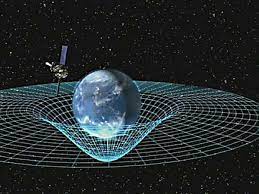
Space Physics Program Institute of Space Science and Engineering (ISSE) (an Affiliate of African University of Science and Technology (AUST), Abuja, Nigeria) The Space Physics Program (SPP) at Institute of Space Science and Technology (ISSE) currently offers MSc and PhD programs using state of the art facilities at the National Space Research and Development Agency (NASRDA) and renowned faculty from African University of Science and Technology, Abuja. The degrees are supervised and awarded by the African University of Science and Technology (AUST) and therefore the programs conform to the highest standards set by the university. Space Physics covers the study of the physical condition of the entire region of space that includes the upper atmosphere from altitude of about 40 km above the earth surface and terminates at the center of the Sun. This region includes the space environment that serves as home to satellites and other space-based assets. Services of space-dependent technologies have become part of our daily life. The health of satellites that drive space-dependent technologies depend on the condition of the space environment. The radio signals that transmit information between the satellites and the receivers on ground are trans-ionospheric. Understanding space environment and earth’s weather, as well as their interactions, has become issue of global concern. Space Physics focuses on the physical processes that describe the dynamics of the space environment and its drivers. The program starts with basic core subjects in Physics, such as electrodynamics and quantum mechanics. It then exposes the physics of the atmosphere from the lower atmosphere to the upper atmosphere. The conditions in space environment and the solar-terrestrial interactions are covered by the course. The program is aimed at producing highly skilled intellectuals in space physics. Graduates from this program are expected to find usefulness as scientists in space industry, universities, research institutions, navigation industry, and such likes. Admission requirements for the MSc program include a Bachelor’s degree in relevant field with a second class upper (minimum CGPA of 3.0 on a 4 point scale and 3.5 on a 5 point scale). The MSc in SPP requires 18 months (12 months of course work and 6 months of research ending up in an acceptable MSc Thesis) and is based on a combination of foundation, core and elective courses, plus thesis research. MSc Courses in Space Physics include: Introduction to Space Science, Engineering and the Society; Methods of Applied Mathematics I; Numerical Methodsin Sciences & Engineering; Electrodynamics; Quantum Mechanics; Research Methodology and Communication; Method of Applied Mathematics II; Space Plasma Physics. Graduation requirements include a minimum CGPA of 3.0 on completion of the course work. Admission requirements for the PhD program in Space Physics include the same requirements for the MSc program plus an MSc in the relevant field with a minimum CGPA of 3.5 on a 4 point scale or 4 on a 5 point scale. The PhD program requires a minimum of 3 years made up of one year course work and two years of research. The course work includes a minimum of 4 advanced courses at the PhD level plus some MSc courses depending on the student’s background. Courses include: Solar Terrestrial Interactions; Advanced Plasma Physics; Research Methodology and Communication; Research Seminar. Graduation requirement include a CGPA of 3.0 on a 4 point scale (3.5 on a 5 point scale). Graduation requirement include a CGPA of 3.0 on a 4 point scale (3.5 on a 5 point scale) plus two papers published from the Thesis in at least a SCOPUS indexed journal. The program is very intensive and only well-motivated and prepared students are encouraged to apply. The courses are taught as 3- or 4-week modules of 45 to 60 hours, including lectures and problem solving sessions. Details of the course outline are in the handbook. The Problem Based Learning (PBL) and Outcome Based Education (OBE) approaches are used in teaching. For more details on course description, fees, faculty, research areas, visit the student handbook or: www.isse.edu.ng ; www.aust.edu.ng